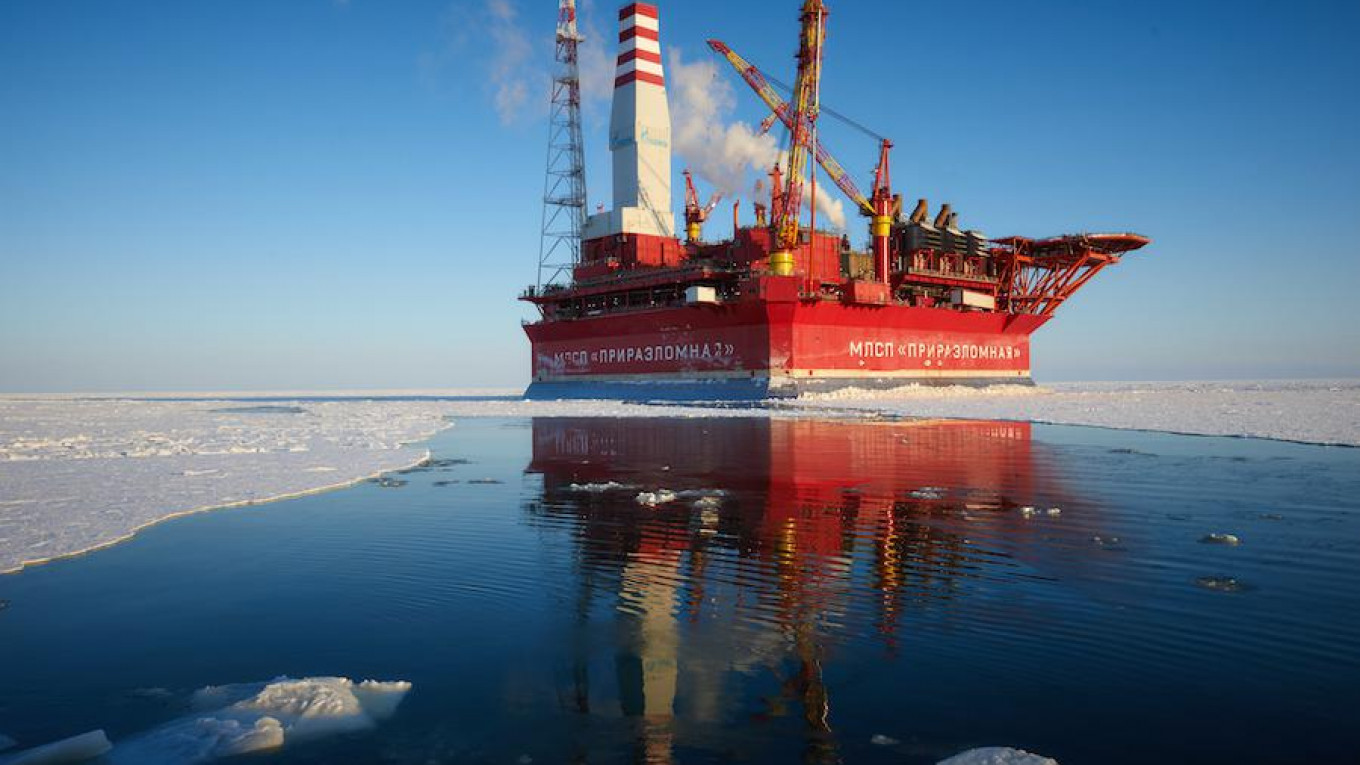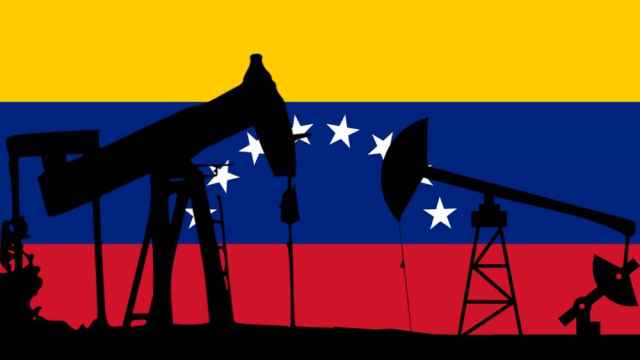For the last few days, oil prices have been on the rise. The spike was market reaction to Russia and Saudi Arabia's apparent readiness to extend oil production restrictions for at least half a year.
Imposed last year by the Organization of Petroleum Exporting Countries (OPEC), Russia, and other producer countries, the supply-side pact has buffered flagging oil prices. With an extension of the agreement, prices are likely to hover around $50 to $55 until the end of the year, experts agree.
Unsurprisingly, Moscow is a firm believer in the extension. With oil prices rising, the Russian Ministry of Finance has just increased its expectations for budgetary income in 2017. Its previous budget was modeled on $40-dollar oil prices. Now, the Ministry predicts the deficit will decrease.
On the surface, the agreement seems like a home run for Russia, a country extremely dependent on oil income. But the reality is slightly more complicated.
From Russia’s perspective, the current OPEC+ agreement was supposed to drive the oil price up to around $60 per barrel by reducing oil extraction by 1.7 to 1.8 million barrels per day. For Moscow, this meant a daily cut of 300 thousand barrels. And the pact failed to achieve the goal of $60. But the outcome for Russia was far better than nothing: oil prices currently stand at around $50.
Furthermore, when oil prices plunged below $47 earlier this month, it reminded Russia and its partners of what was at stake. The fall “almost eliminated the price gains” made since the pact participants agreed on the production cuts in November, says Peter Kaznacheev, managing partner at the Khaznah Strategies consulting firm. “This has mobilized OPEC countries and Russia.”
For this reason, as Russia prepares for a new round of talks with Saudi Arabia, the probability of reaching a new agreement is very high. But the devil is in the details: Who besides Russia will be in the new pact? What reductions can they agree upon? How long will the extension last?
The pact operates at the margins of what is achievable for Moscow. Russian companies “can afford [these cuts] by closing unprofitable well sites, but anything more restrictive would be difficult,” says Sergei Pikin, Director of the Institute of Energy Development.
Were the OPEC+ group to agree to increase cuts to 2 or 2.5 million barrels, “this would change the picture significantly,” he says. But that is unlikely.
A full-year extension of the pact would potentially raise oil prices to $60. But this outcome is also unlikely, Pikin says. For oil producers, there are simply too many unknowns for such a long agreement: What will be the demand from China? And what will be the supply coming from the United States?
The U.S. element is particularly important here. The U.S. is not a participant in the pact. Provided oil prices stay in the $50 to $60 corridor, American oil will fill the niche left by extended production cuts.
For its part, Russia would naturally prefer better conditions for itself. Russian oil companies, in particular, are not fans of the cuts. Last year, Igor Sechin, CEO of Russia’s Rosneft oil conglomerate, even urged the Russian government not to agree to the pact.
He had reason to be concerned. The problem with production cuts is that they create market expectations that they will be extended. Failing to renew them can lead to a plunge in prices, Kaznacheev told The Moscow Times in an email. But Russia is unlikely to achieve better conditions for itself — except, perhaps, a shorter extension.
The reason is that any attempt to get special treatment would likely derail the negotiations, says Andrei Polishchuk, an oil and gas analyst with Raiffeisenbank.
“The major actors [in the pact] are Saudi Arabia and Russia,” he says. “In order to convince the other countries to stay on, they can’t reevaluate the current conditions for Russia.” And Russia is unlikely to risk undermining the extension. Without the pact, oil prices could fall below $40 per barrel.
The last time that happened, in early 2016, it dragged the ruble’s value to its lowest point since the 1998 financial crisis. At the time, Finance Minister Anton Siluanov stressed the risk that the 1998 crisis could repeat itself if the government failed to make necessary budget adjustments.
For Moscow, that would be a much worse outcome than the OPEC+ status quo.
A Message from The Moscow Times:
Dear readers,
We are facing unprecedented challenges. Russia's Prosecutor General's Office has designated The Moscow Times as an "undesirable" organization, criminalizing our work and putting our staff at risk of prosecution. This follows our earlier unjust labeling as a "foreign agent."
These actions are direct attempts to silence independent journalism in Russia. The authorities claim our work "discredits the decisions of the Russian leadership." We see things differently: we strive to provide accurate, unbiased reporting on Russia.
We, the journalists of The Moscow Times, refuse to be silenced. But to continue our work, we need your help.
Your support, no matter how small, makes a world of difference. If you can, please support us monthly starting from just $2. It's quick to set up, and every contribution makes a significant impact.
By supporting The Moscow Times, you're defending open, independent journalism in the face of repression. Thank you for standing with us.
Remind me later.







